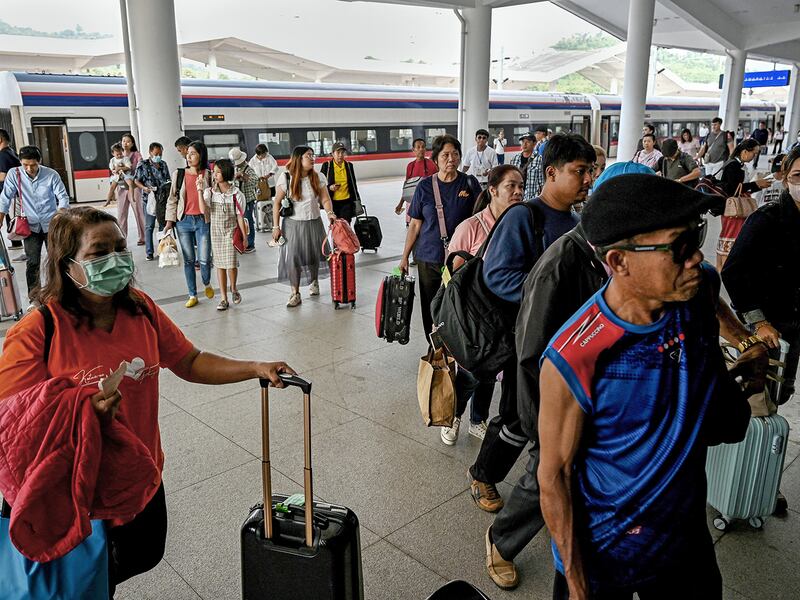An official from Laos’ central national bank urged market vendors to stop accepting Chinese yuan following the arrest of a Chinese man who investigators said spent fake currency in the popular tourist area of Luang Prabang.
“To avoid counterfeit currency, vendors can ask their customers to exchange their money at the bank first,” said the Bank of the Lao PDR official, who requested anonymity to speak about a government matter.
“It is our weak point that people want foreign currency. So, they take it,” he said.
Laos’ runaway inflation rate – sometimes as high as 41 percent in recent years – has made foreign currencies like the Thai baht and the Chinese yuan more appealing than the Lao kip in markets and shops.
The man was arrested on Dec. 25, a police officer told Radio Free Asia. An investigation is expected to last at least two months, and any shop owners who accepted the fake currency should file a complaint with police, he said.
“There are many victims,” he said.

Luang Prabang – Laos’ top tourist destination – has become particularly popular with Chinese investors. The town saw a spike in Chinese-run hotels and restaurants following the 2021 opening of a high speed rail line that runs from southwestern China’s Yunnan province to Laos’ capital, Vientiane.
One of the route’s 10 passenger stations is in Luang Prabang, a UNESCO World Heritage Site known for its outdoor night market and ancient Buddhist temples.
Tempted by lower rates
One Laotian reacted to the news of the arrest by urging “yuan lovers” on Facebook to “be extra careful.”
With sarcasm, another Laotian said: “Bring more Chinese, so we can get their fake money.”
Despite the news of the arrest, some night market vendors have continued accepting yuan in smaller denominations.
“Because I can identify which one is fake and which one is not. I have enough knowledge about currency,” one vendor told RFA. “I will accept 50 and 20 bills. I will ask them to exchange it if they offer a 100 yuan note.”
RELATED STORIES
Counterfeit bills spread in northern Laos
Planned projects in Luang Prabang, Vang Vieng aimed at Chinese tourists
Three Chinese Arrested in Laos for Passing Counterfeit Currency
Some vendors took the counterfeit bills because the suspect was willing to pay with yuan at a lower exchange rate compared to the kip.
“Over here now we cannot use Thai baht, dollar or other currencies publicly,” a restaurant owner said. “But when someone offered a lower rate, many vendors seemed happy and thought they were lucky. But in fact they got fake money.”
In 2019, three Chinese nationals were arrested in Luang Prabang after they tried to buy holiday clothing with fake 50,000 and 100,000 kip banknotes that a shopkeeper noticed were marked by smeared ink.
The national bank issued warnings in 2023 and last April about counterfeit 100,000 kip, 50,000 kip and 1,000 Thai baht (US$29) notes surfacing across the country.
A 100 yuan bill is worth about $13.70, while a 100,000 kip note is the equivalent of $4.50.
Translated by Khamsao Civilize. Edited by Matt Reed.
